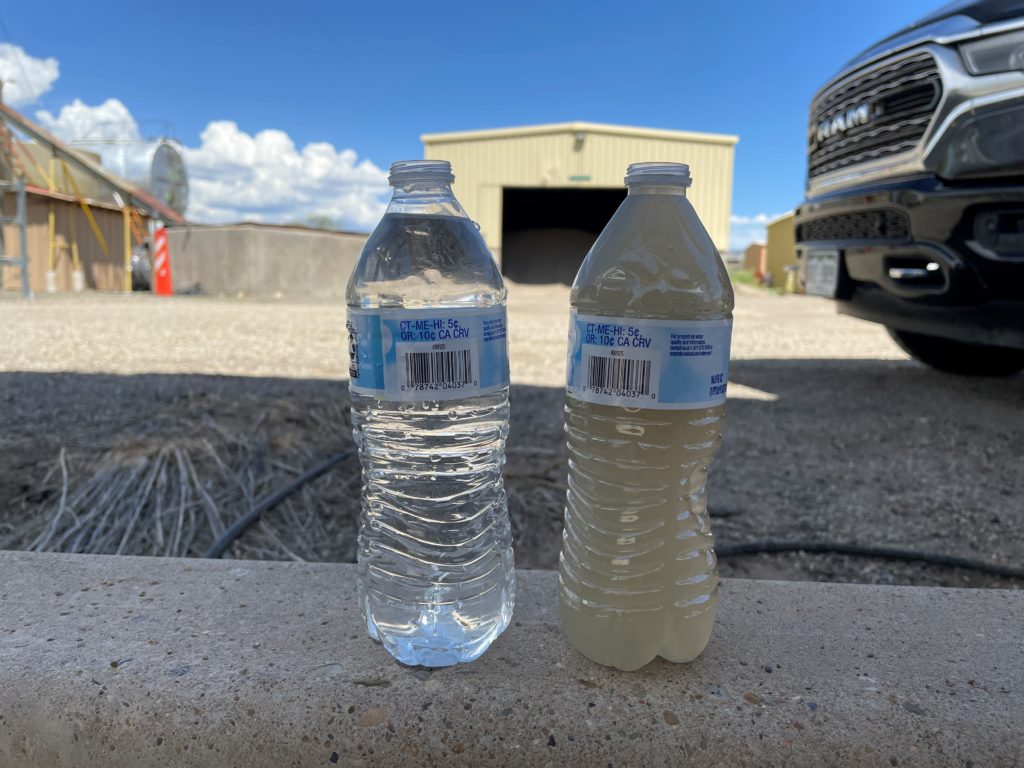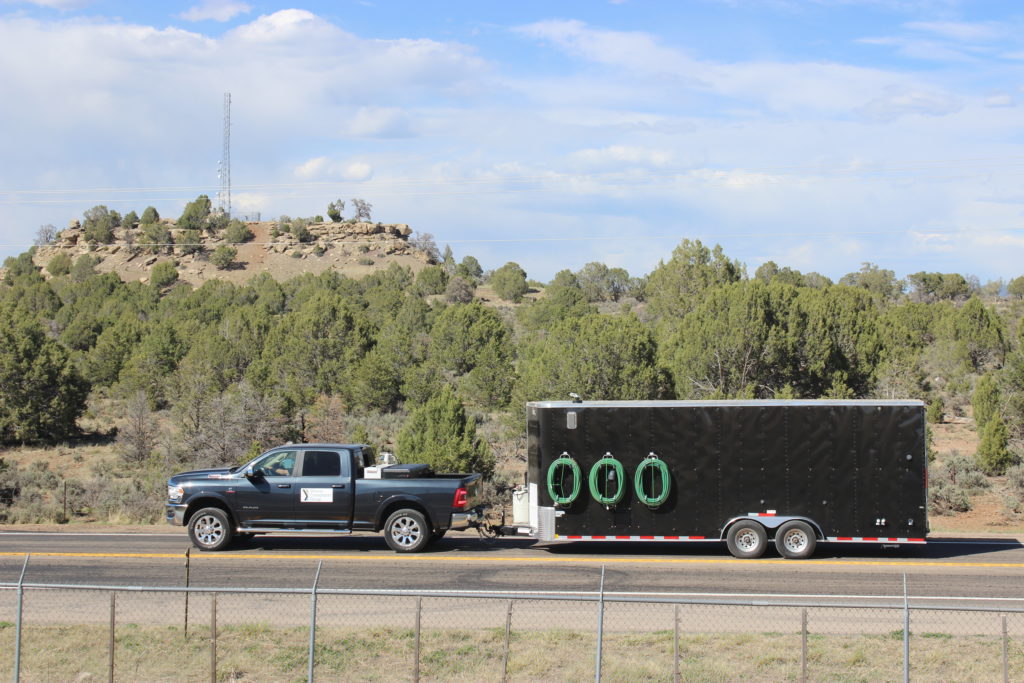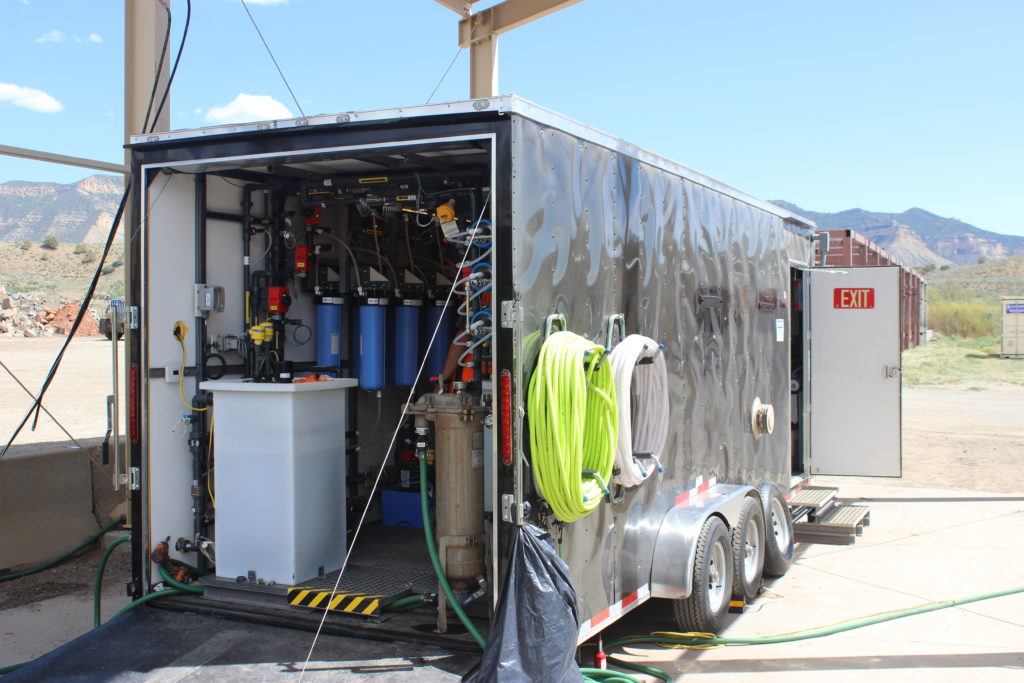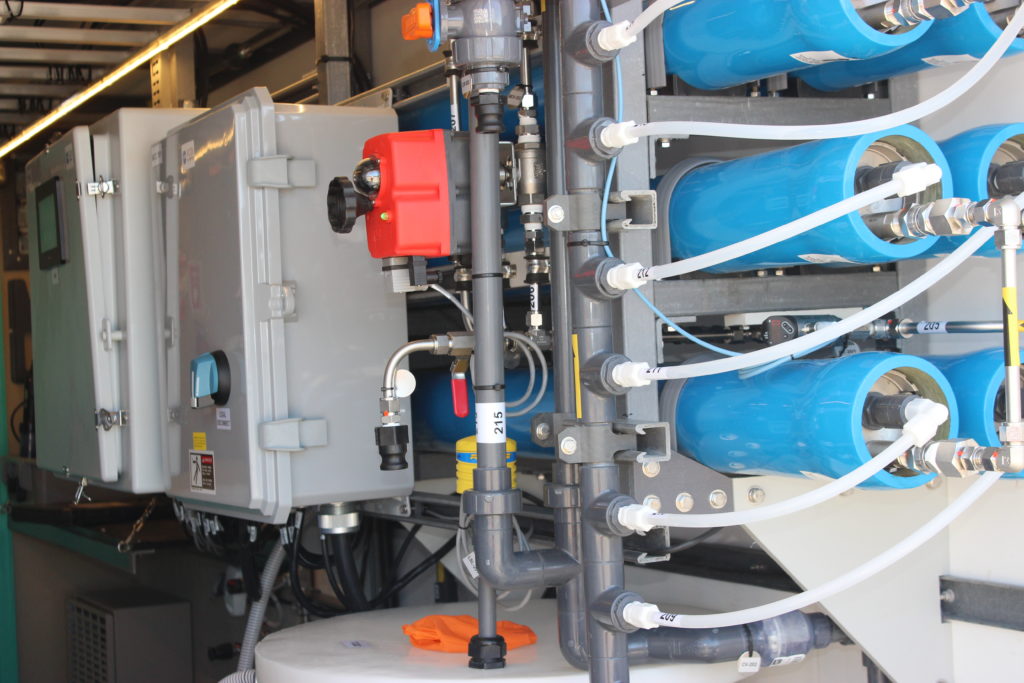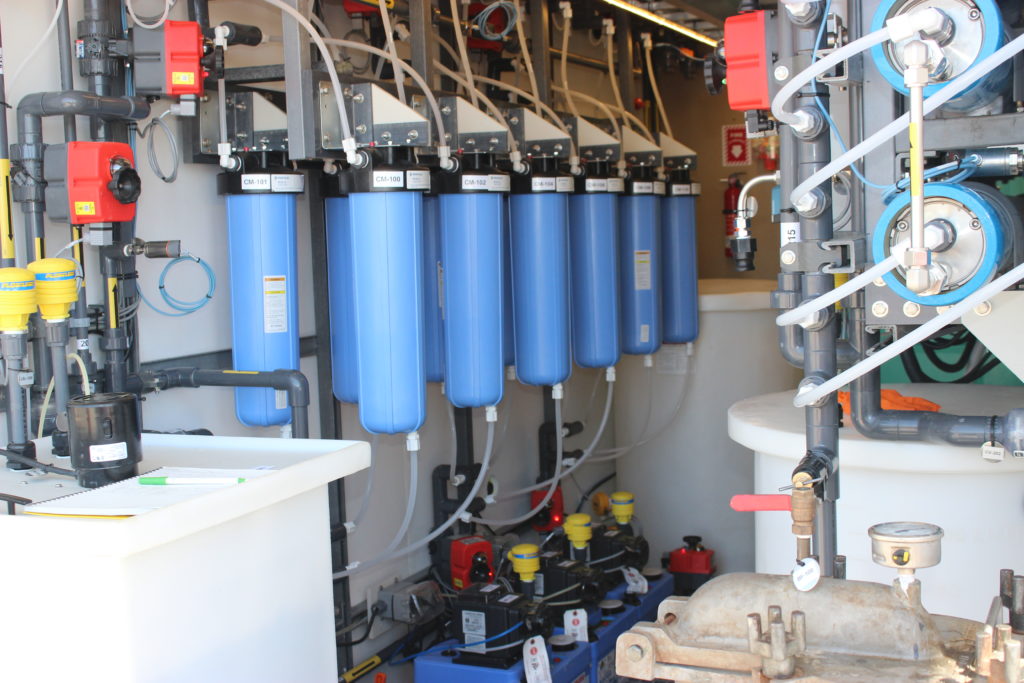Emergency Response Actions at Arctic North Warning System Radar Station
Confidential Client – Arctic Emergency Response Action, Wastewater Treatment System Design, Construction, Installation, Testing, Optimization […]
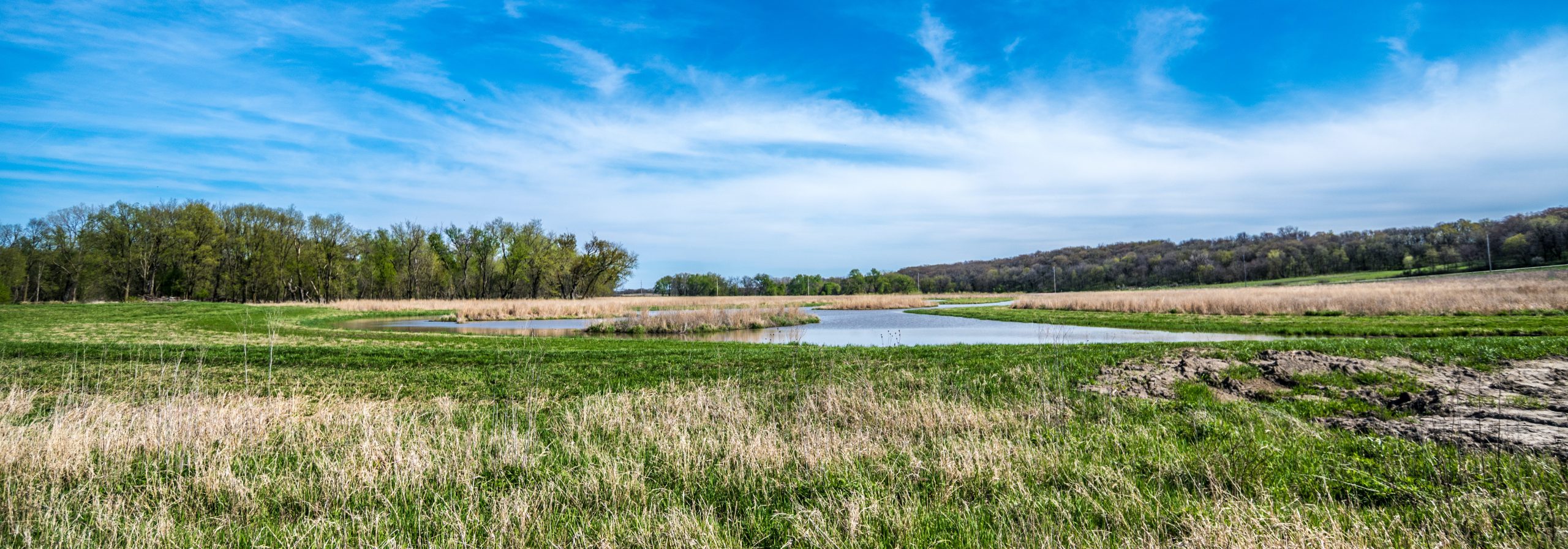
Weaver Consultants Group (WCG) provides comprehensive support to over 45 industrial wastewater treatment systems for the Colorado Department of Transportation (CDOT) maintenance facilities statewide. These CDOT facilities are primarily used for maintenance and truck washing of heavy roadway and snow removal machinery, which produce a challenging mixed waste stream containing oil, grease, fuels, suspended solids, and high salt concentrations. Additionally, these facilities lack access to municipal infrastructure and rely on water treatment systems to remove contaminants before reuse in their truck washing systems. WCG’s support to CDOT includes testing, design, construction, and installation of new floor drain water treatment/recycle systems (FDWTSs) and operation, maintenance, and monitoring (OMM) services of existing FDWTSs.
Since September 4, 2020, WCG has teamed with CDOT to evaluate alternative treatment strategies to improve water reuse. As part of the evaluation process, WCG conducted bench scale testing of approximately 100 gallons of raw floor drain (FD) water collected from a facility located in Empire, Colorado. Laboratory results from this test indicated that reverse osmosis (RO) effectively and efficiently treated FD water impacted with elevated salt, oil and grease, total dissolved solids (TDS), total suspended solids (TSS), and metals to produce water of sufficient quality for reuse in vehicle cleaning applications. Following a review of the bench scale test results, WCG expanded the RO evaluation to include a multi-site pilot test to assess RO treatment capability over multiple days at different CDOT facilities, using changing influent water qualities.
Field Pilot Testing
With our partner RODI Systems, WCG performed testing activities at three CDOT facilities in June 2021. During the three days of testing, over 1,000 gallons of raw FD water were treated with a mobile RO pilot treatment system. The mobile RO system converted approximately 65 percent of the treated water to clean “permeate” water, suitable for reuse. During pilot testing, WCG evaluated several key areas for further developing the RO treatment technique, including the pretreatment approach, operator knowledge, and system uniformity. The analytical results and field observations suggested that RO technology can treat a range of FD water to suitable levels for vehicle washing applications, provided a site-specific pretreatment method is utilized at each facility.
Based on the results of the bench scale RO treatment tests and the multi-site RO pilot treatment tests, WCG recommended the development of the RO treatment program with the implementation of an advanced RO pilot program. The advanced RO pilot program consisted of procuring one trailer-mounted RO treatment system capable of treating approximately five to ten gallons per minute (GPM).
Mobile RO Treatment System
RODI Systems completed the construction of a mobile RO treatment system in May 2022. The RO treatment system is a self-contained unit that can produce high-quality water in less than a day after arrival on-site. The mobile RO treatment system is operated by a single water treatment operator, who oversees the three primary treatment steps: prefiltration, ultrafiltration, and RO.
After arriving on-site, the trailer is staged near the underground storage tanks and on-site water treatment system. Initial water quality and chemistry measurements are evaluated, and select chemicals are dosed to aid in the pretreatment of the water. Bag filtration and flocculation using coagulants are primarily used in the initial prefiltration process to remove suspended solids, oil, grease, and fuels.
Ultrafiltration is performed within the trailer using ceramic filters, which remove contamination to 0.1 microns and reduce turbidity to less than 5 NTU. The water is then pushed through the RO membranes at high pressures to remove dissolved solids, mainly salts, within the water. The RO produces two effluent streams, a “permeate” stream of deionized-like water suitable for truck washing reuse and a “reject” stream of concentrated brackish water. The brackish water is applied to CDOT sand piles for roadway application during winter storms. The RO operates at an 80 to 90 percent efficiency depending on influent conditions and concentrations, meaning that for every 100 gallons of raw influent water, 80 to 90 gallons of permeate water are produced. Feedback from CDOT has indicated the permeate water used for truck washing does a better job cleaning than using City or well water.
In the first two months of operation, the RO trailer has processed almost 20,000 gallons of water at nine different facilities across the state. Continued system improvements and the customized design of the system will allow WCG to adapt this RO pilot system to many other applications, such as mining wastes, landfill leachate, industrial process wastes, and oil and gas by-products.
